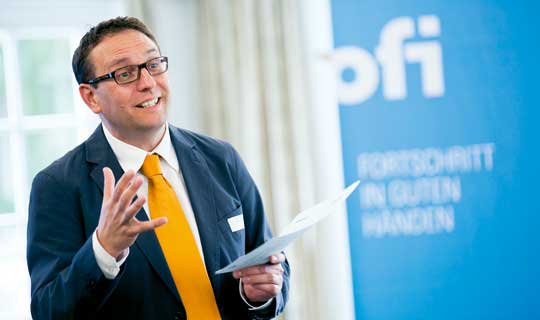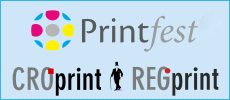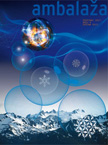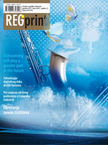«
Back to content
Vol 3 | Year 2013

Johannes Bergmair, Head of OFI department “Life Science”: Keep your enthusiasm for packaging!
Johannes Bergmair, Head of OFI department “Life Science” wishes a warm welcome to Croatia in the European Union. He thinks that in process of harmonization with EU regulations the biggest challenge for Croatia is not a technical issue. It’s about getting the right information to the right people. And that means to every company in the food supply chain dealing with food contact materials.
An international expert in packaging and food safety Johannes Bergmair is calling for global collaboration when it comes to regulations that relate to the safety of food and beverage packaging. The chemical interactions that can occur between food and its packaging is a delicate issue for the industry and a subject of many researches, according to Johannes Bergmair, who works in Ofi, one of Austria’s largest research and testing institutes for packaging and food safety.
At the WPO’s Board meeting held in May in Australia, one of the conclusions which have been drawn is the one regarding establishment of a working group which will be in charge of harmonization of regulations related to food safety and beverages packaging on a global level. Is the working group already active and who are the members?
No, the working group is not active yet. We decided in Australia to install such a group. It is my duty now to set up a structure of possible topics for this group to discuss at our next WPO meeting in November in Barcelona, Spain. It must be stated clearly, that the aim of setting up some actions towards worldwide harmonization of these regulations is far away in the future. But it is an aim worth working for! To say it with the words of Tom Schneider (WPO’s President): “It was possible to reach this harmonization in the field of packaging for dangerous goods, so why it should not be possible for packaging for foodstuff?”
Chemical interactions or, in other words, migrations of substances from the packaging into food are a subject of scientific researches and it is considered to be a delicate question. What will be a working method of the group? What is your method for harmonization and what are the necessary first steps?
As I mentioned, the strategy and methods of the group are not finally decided yet. In my opinion it would be effective to set up a network of information and experts in each WPO-country about regulations in the field of food safety of packaging materials. In the future it should be possible to set up a lobbing process to reach measures towards harmonization. But I think, for this action we also need the support of global packaging players, especially big suppliers of packaging materials.
What is the best way to raise awareness on a global level when it comes to that topic and the topic of harmonization of regulations?
I think we should play this game by positive thinking: To line out the important role of packaging in the field of food safety. Think of the tons of foodstuff which would be spoiled worldwide if the right packaging wouldn’t protect them! Packaging is one of the big solutions for feeding the world, even with a growing population! So I think it is easy to make it clear for all relevant decision makers in the world, that everything which makes it easier to supply good, safe packaging materials worldwide is an important step for the future of our planet. I don’t want to be too pathetic, but it is all in the WPO vision. “Better Quality of Life, Through Better Packaging, For More People”.
Probably the best-known example of that inconsistency is bisphenol-A (BPA), differently treated in various countries. While it is completely forbidden in some countries, elsewhere is considered not to be very harmful. What is its reputation in the European Union?
Good question! And a good example that we need more harmonization, even within the EU! This is how I see it - it is just ridiculous how the discussion around BPA is going on in the EU. There is a clear statement of the highest authority for such questions in the EU – EFSA (European Food Safety Authority). And ok, we also have to challenge scientific opinions regularly - but if we are talking about scientific/toxicological topics, we should discuss it in a scientific/toxicological way, not in a populist way. We have to learn to deal with such inconsistency in Europe and worldwide.
You are the manager of OFI, Austrian research institute for chemistry and technology, which conducted the Xeno-project last year. What findings emerged from that research?
The majority of food packaging of our screening was not hormone active (90 %).
Activities are mostly much lower than the activities previously detected in mineral water
BUT a few samples show significant higher activity and have to be further analysed in order to detect and eliminate the source of activity.
We started a second project phase continuing our work in this field.
What are the current projects conducted by OFI?
As mentioned before, we work on the project “Xeno – free”. The goal is to find out how the Xeno-hormons find their way into the packaging material and how to avoid a contamination.
There is also a project in the field of waste reduction; we try to reduce packaging material with the help of better packaging design.
What kind of testing and inspection related to packaging does OFI conduct?
Chemical/physical, material analyses, mechanical testing, permeability and light protection as well as determination for packaging atmosphere. We also do sensory analyses, leak proofness and leak detection. Mostly it is individual testing in line with clients ‘specifications.
It is well known that top quality testing equipment is not the only crucial factor for accurate result. Highly skilled personnel are also extremely important, which is probably the most evident when it comes to presenting the results of research to a client in a comprehensible way...
We are very proud of our well-trained and motivated scientific staff. Clients with specific problems need a contact person they can trust. The qualification to find individual solutions is crucial to us.
What are the most common problems for which companies turn to OFI for help when it comes to packaging? Who can use your services?
We do all kind of standard testing for companies. We are well known for individual solutions regarding cases of damage. You can also assign us with innovative packaging solutions for your product. Our customers are mostly packaging and food companies, but our services are open to everyone in need of good packaging.
By entering the EU, Croatia was and still is obliged to harmonize its regulations related to packaging industry in order to comply with the existing regulations. According to your opinion, since you are familiar with the EU regulations, what is the biggest challenge in that process of harmonization?
First: A warm welcome to Croatia in the European Union! I’m personally really happy that you finally made it and that our European family is growing!
The biggest challenge? Maybe you are surprised, but I think it’s not a technical issue. It’s about getting the right information to the right people. And that means to every company in the food supply chain dealing with food contact materials. Believe me: We are still working on these issues in such “old” EU countries like Austria or Germany …
In what way can Croatian packaging industry become competitive on this EU market?
Don’t be afraid! I have many positive feedbacks about Croatian packaging companies here in Austria. Many representatives of Austrian food companies are surprised of the high quality of both products and companies. You have to realize that this is really one market: If you have the right quality for the best price and enough flexibility and sensibility for the needs of the market, you will make your way! No matter if you are located in Austria, Croatia or elsewhere.
At the end of the interview, what would be your message for Croatian packaging industry?
Keep your enthusiasm for packaging! And tell the people around you how important packaging is for a better world in the future!
Well, ok, maybe I’m really a bit too sentimental today…
Interview by: Tihana Lešić
At the WPO’s Board meeting held in May in Australia, one of the conclusions which have been drawn is the one regarding establishment of a working group which will be in charge of harmonization of regulations related to food safety and beverages packaging on a global level. Is the working group already active and who are the members?
No, the working group is not active yet. We decided in Australia to install such a group. It is my duty now to set up a structure of possible topics for this group to discuss at our next WPO meeting in November in Barcelona, Spain. It must be stated clearly, that the aim of setting up some actions towards worldwide harmonization of these regulations is far away in the future. But it is an aim worth working for! To say it with the words of Tom Schneider (WPO’s President): “It was possible to reach this harmonization in the field of packaging for dangerous goods, so why it should not be possible for packaging for foodstuff?”
Chemical interactions or, in other words, migrations of substances from the packaging into food are a subject of scientific researches and it is considered to be a delicate question. What will be a working method of the group? What is your method for harmonization and what are the necessary first steps?
As I mentioned, the strategy and methods of the group are not finally decided yet. In my opinion it would be effective to set up a network of information and experts in each WPO-country about regulations in the field of food safety of packaging materials. In the future it should be possible to set up a lobbing process to reach measures towards harmonization. But I think, for this action we also need the support of global packaging players, especially big suppliers of packaging materials.
What is the best way to raise awareness on a global level when it comes to that topic and the topic of harmonization of regulations?
I think we should play this game by positive thinking: To line out the important role of packaging in the field of food safety. Think of the tons of foodstuff which would be spoiled worldwide if the right packaging wouldn’t protect them! Packaging is one of the big solutions for feeding the world, even with a growing population! So I think it is easy to make it clear for all relevant decision makers in the world, that everything which makes it easier to supply good, safe packaging materials worldwide is an important step for the future of our planet. I don’t want to be too pathetic, but it is all in the WPO vision. “Better Quality of Life, Through Better Packaging, For More People”.
Probably the best-known example of that inconsistency is bisphenol-A (BPA), differently treated in various countries. While it is completely forbidden in some countries, elsewhere is considered not to be very harmful. What is its reputation in the European Union?
Good question! And a good example that we need more harmonization, even within the EU! This is how I see it - it is just ridiculous how the discussion around BPA is going on in the EU. There is a clear statement of the highest authority for such questions in the EU – EFSA (European Food Safety Authority). And ok, we also have to challenge scientific opinions regularly - but if we are talking about scientific/toxicological topics, we should discuss it in a scientific/toxicological way, not in a populist way. We have to learn to deal with such inconsistency in Europe and worldwide.
You are the manager of OFI, Austrian research institute for chemistry and technology, which conducted the Xeno-project last year. What findings emerged from that research?
The majority of food packaging of our screening was not hormone active (90 %).
Activities are mostly much lower than the activities previously detected in mineral water
BUT a few samples show significant higher activity and have to be further analysed in order to detect and eliminate the source of activity.
We started a second project phase continuing our work in this field.
What are the current projects conducted by OFI?
As mentioned before, we work on the project “Xeno – free”. The goal is to find out how the Xeno-hormons find their way into the packaging material and how to avoid a contamination.
There is also a project in the field of waste reduction; we try to reduce packaging material with the help of better packaging design.
What kind of testing and inspection related to packaging does OFI conduct?
Chemical/physical, material analyses, mechanical testing, permeability and light protection as well as determination for packaging atmosphere. We also do sensory analyses, leak proofness and leak detection. Mostly it is individual testing in line with clients ‘specifications.
It is well known that top quality testing equipment is not the only crucial factor for accurate result. Highly skilled personnel are also extremely important, which is probably the most evident when it comes to presenting the results of research to a client in a comprehensible way...
We are very proud of our well-trained and motivated scientific staff. Clients with specific problems need a contact person they can trust. The qualification to find individual solutions is crucial to us.
What are the most common problems for which companies turn to OFI for help when it comes to packaging? Who can use your services?
We do all kind of standard testing for companies. We are well known for individual solutions regarding cases of damage. You can also assign us with innovative packaging solutions for your product. Our customers are mostly packaging and food companies, but our services are open to everyone in need of good packaging.
By entering the EU, Croatia was and still is obliged to harmonize its regulations related to packaging industry in order to comply with the existing regulations. According to your opinion, since you are familiar with the EU regulations, what is the biggest challenge in that process of harmonization?
First: A warm welcome to Croatia in the European Union! I’m personally really happy that you finally made it and that our European family is growing!
The biggest challenge? Maybe you are surprised, but I think it’s not a technical issue. It’s about getting the right information to the right people. And that means to every company in the food supply chain dealing with food contact materials. Believe me: We are still working on these issues in such “old” EU countries like Austria or Germany …
In what way can Croatian packaging industry become competitive on this EU market?
Don’t be afraid! I have many positive feedbacks about Croatian packaging companies here in Austria. Many representatives of Austrian food companies are surprised of the high quality of both products and companies. You have to realize that this is really one market: If you have the right quality for the best price and enough flexibility and sensibility for the needs of the market, you will make your way! No matter if you are located in Austria, Croatia or elsewhere.
At the end of the interview, what would be your message for Croatian packaging industry?
Keep your enthusiasm for packaging! And tell the people around you how important packaging is for a better world in the future!
Well, ok, maybe I’m really a bit too sentimental today…
Interview by: Tihana Lešić
















